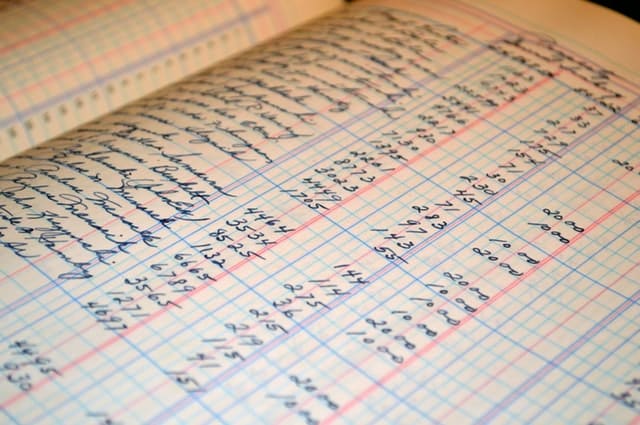
Have you heard somebody talk about a larger number in English?
Does it ever seem as though this expression might be a bit of an exaggeration?
We’re going to look at ways to express a rather large number in an exaggerated way.
You might be surprised at just how often you might use a phrase like this, and how it can make for a fun addition to a English conversation with a native speaker.
Get Your Transcripts Today!

Make sure you understand every word you hear on All Ears English.
Bring your English to the advanced level with new vocabulary and natural expressions.
Subscribe and get the transcripts delivered by email.
Learn to speak naturally with the American accent.
Click here to subscribe and save 50%
We have a question from a listener about larger numbers and how to talk about them.
Hey girls!
Thank you a million for your awesome show, and for having answered two questions of mine already. Recently I’ve come up with another interesting word that I could use some help with– “umpteenth.”
I have heard the phrase “I drank my umpteenth cup of coffee.” I wonder if this is used in a real informal conversation, and how you might talk about it.
Thanks again for your amazing work, and have a nice day!!
Rr6595r
Exaggerating A Number
When you talk about bigger numbers, it can be tricky sometimes.
The word “umpteenth” is a perfect example of that, though it’s definitely more of an exaggeration.
So let’s start with the question, what is umpteenth?
It’s an exaggeration, and it’s basically saying “a whole lot.”
It’s taking this exaggeration for “a whole lot” and turning it into a sort of number.
You wouldn’t really say “umpteen,” but you would say “umpteenth” in your conversations.
When you say this word in a sentence, it’s to show that something has been done numerous times over and over.
The word “umpteenth” is not used for a small number, and that’s the main point.
Using This In Conversation
So you see that the word “umpteenth” is about exaggeration.
We talked about larger numbers before How To Use The Word Sheer To Discuss Larger Numbers In English
Larger numbers can be tough in conversation sometimes.
When it comes to the word “umpteenth”, you understand that this is about a large number, and you are exaggerating to try to get your point across.
When you see this in real life examples, it might help you to understand how it works and when you might use it.
You might say something like “I love the show Friends. This is like the umpteenth time I’ve watched the whole series.”
You might hear somebody say “For the umpteenth time, the party is starting at 11 not 10!”
It is typically more informal in nature, and it can be used to express shock or even frustration.
As you can see, it can be used in either a positive or a negative way.
That means that the tone of voice you use with this word in conversation matters greatly.
Though this isn’t actually a number, it’s an exaggeration that makes sense.
You can’t put a value to “umpteenth” but you know what people are talking about when they say this in conversation.
Looking At The Origin
If you look at the definition on Merriam-Webster.com, “umpteenth” came from the word “umpty.”
This is from a book called “The Great Push” and it was slang used in the military in the early 1900’s.
This was always a random number that you might use, and it’s never been an exact or defined number.
“Umpty” evolved into “umpteen”, “umpty”, and then “teen.”
In the book, the character war-weary Bill said “I’ll go to bed and I’ll not get up for umpty-eleven months. You know the feeling.”
This character in Patrick MacGill’s early 20th-century novel The Great Push .
His “umpty” originated as military slang around 1905, and it stood for an indefinite number.
It was meant to talk about a generally largish number, and likely created by analogy to actual numbers such as “twenty.”
Soon after followed “umpteen”, which simply blended “umpty” and “teen” in a cohesive way.
“Umpteen usually describes an indefinite and large number or amount, while the related “umpteenth” is used for the latest or last in an indefinitely numerous series.
You may only occasionally use “umpty” these days, but you’re bound to hear or read “umpteen” and “umpteenth” any number of times.
This origin can help you to see how it came to be.
Other Ways To Say This
The word “umpteenth” works just fine in English when you are exaggerating a number in English.
There are other ways to talk about a larger number, or to express your shock or surprise at a larger number.
The idea here is to get your point across about how large a number is in an exaggerated way, and there are other ways to do this too.
- A kajillion/bajillion: This is a term to express the ultimate in an exaggerated number. It’s like a number that almost doesn’t even make sense because it’s so huge. You might say “I don’t feel like sushi tonight. I ate it a kajillion times last week so I’m not in the mood.”
- Using ANY number: You might choose a random number to exaggerate situations and to get your point across. It might not necessarily make sense but it’s to convey something of a larger quantity. You might say something like “Oh my gosh, we have been waiting at this restuarant for like 19 hours!” This is clearly an exaggeration, but it gets your point across nicely.
- I can’t even count: This is more of a phrase but it speaks to the fact that something is so large almost beyond measure. It’s so big you can’t even count the total quantity. You might say “I’ve been sunburned so many times this summer I can’t even count!”
Roleplay To Help
As always a roleplay can really help you to understand how to use these words and phrases.
In this roleplay, Lindsay and Michelle are talking about which movie to see.
Michelle says : “So which one do you wanna see?”
Lindsay says: “How about “The Dark Train”- that looks good.”
Michelle: “Ugh, I can’t even count how many scary movies I’ve seen this year. I’m up for something more lighthearted. How about “The Lovely Story of Love?”
Lindsay: “Nah. I’ve read like a kajillion bad reviews of that one.”
Michelle: “Really? I’ve spoken to like, 20 people who loved it!”
Lindsay: “But I don’t feel like seeing the same romantic comedy for the umpteenth time.”
Michelle: “Fine fine. The Dark Train it is.”
Takeaway
This is a really fun way to scale something with personality, as it’s so much more interesting than just saying “a lot.”
Try using these expressions to convey your shock or even frustration at something that is such a large number or quantity.
This can be a fun way to express that, and you will see that people start to notice.
People might laugh or stop for a second, but they will definitely hear your exaggeration and it’s a fun addition to conversation.
If you have any questions, please leave them below in the comments section.
We’ll get back to you as soon as we can.








